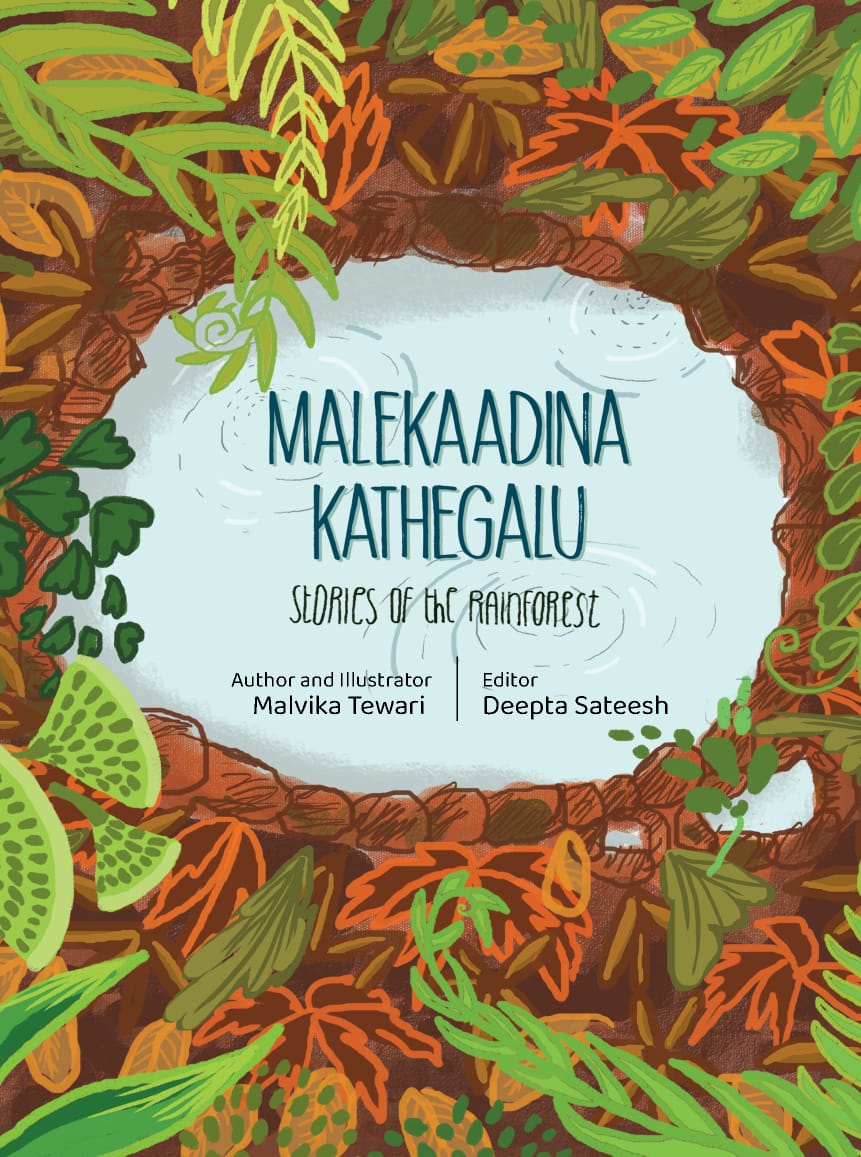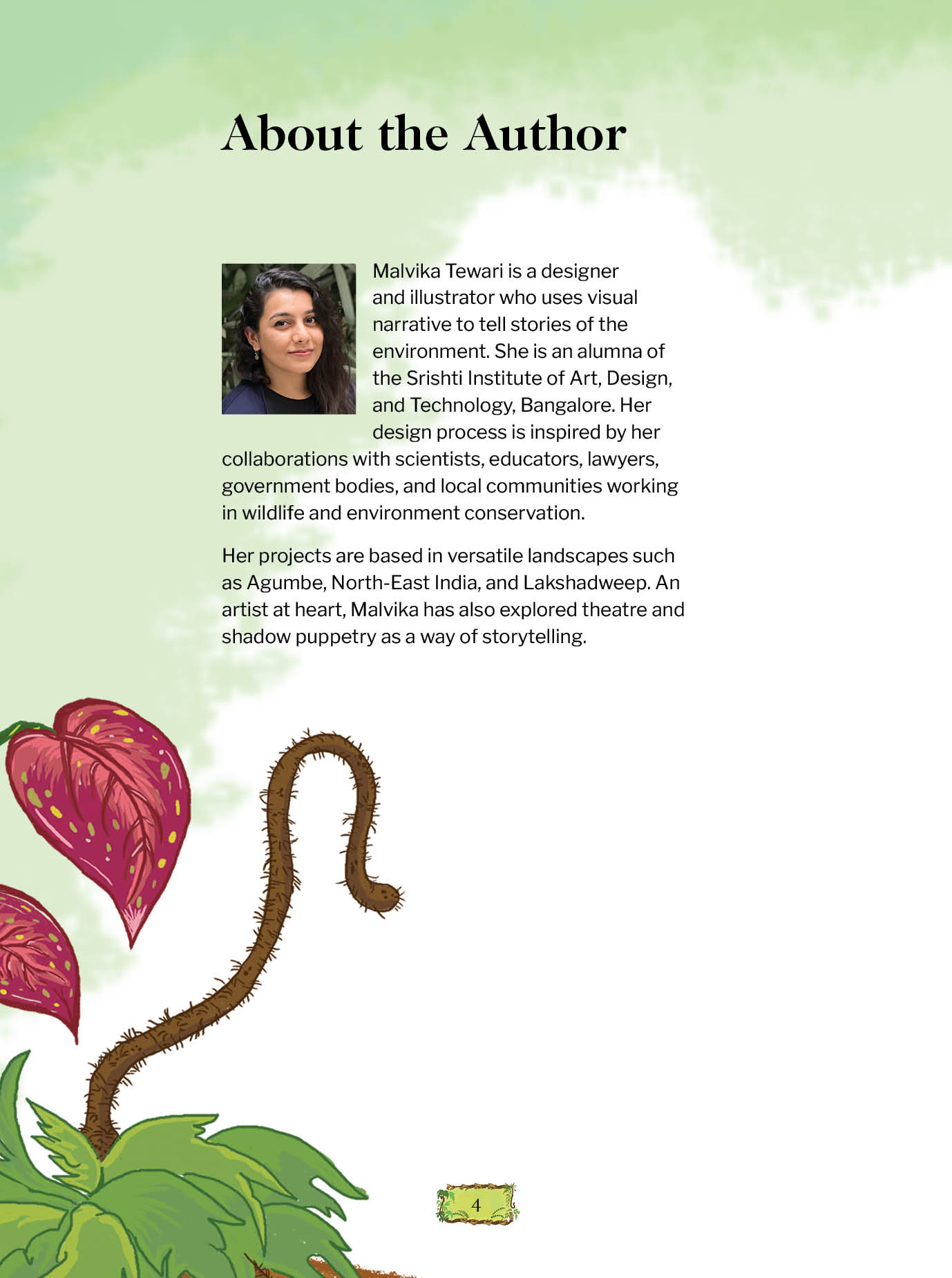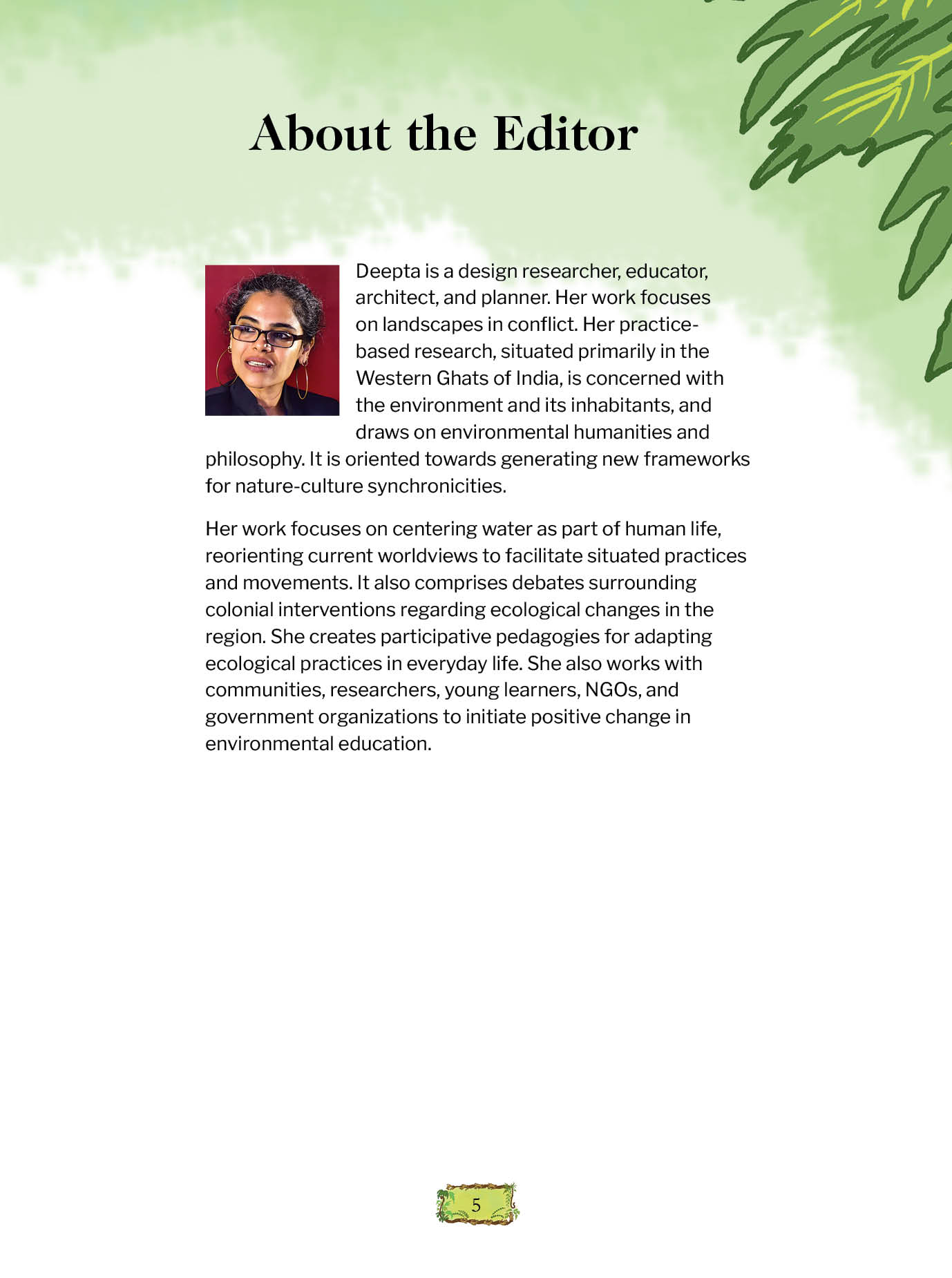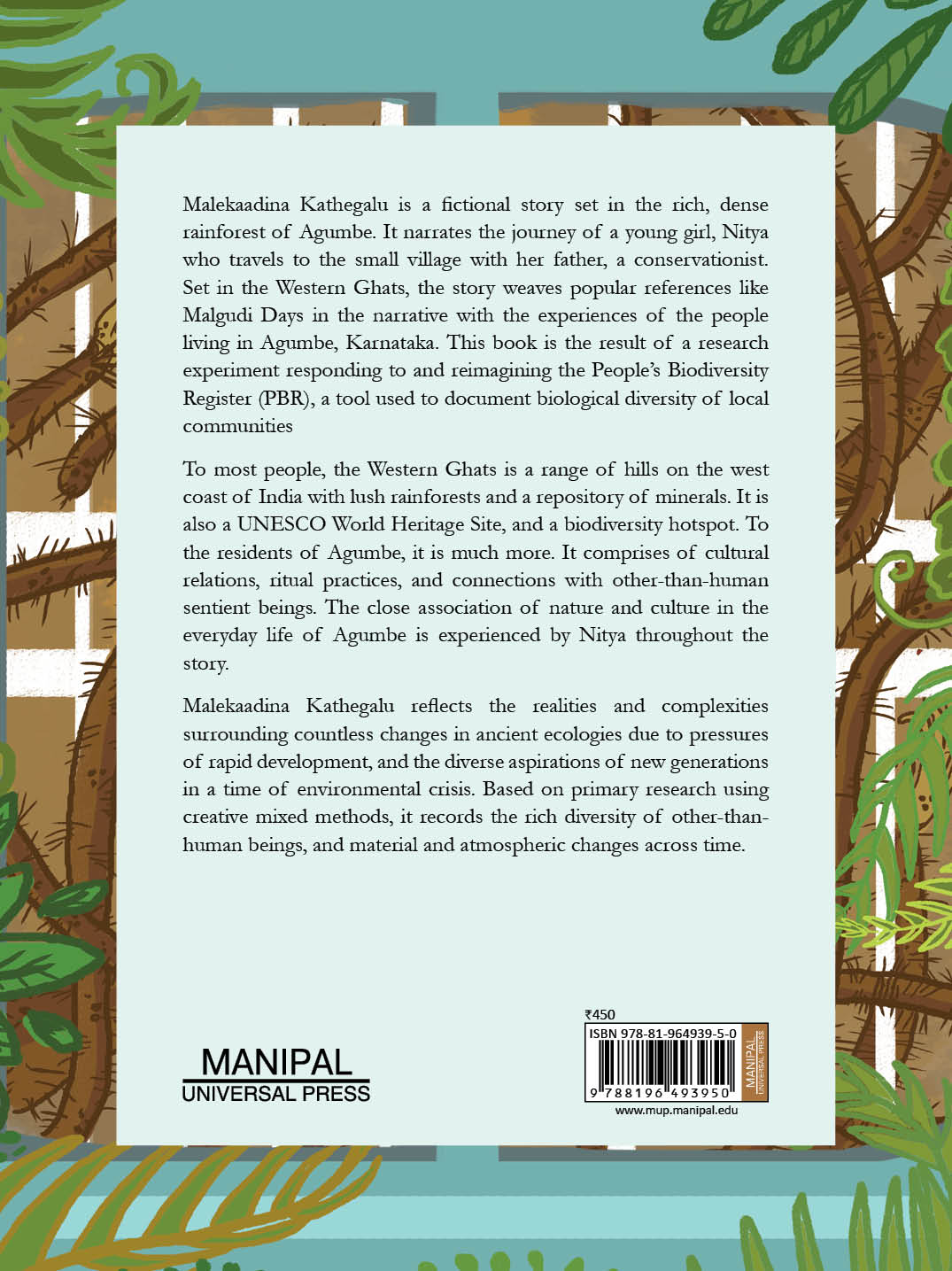Malekaadina Kathegalu – Stories of the Rainforest
₹450.00
Author: Malvika Tewari, Editor: Deepta Sateesh
Malekaadina Kathegalu is a fictional story set in the rich dense rainforest of Agumbe, narrating the journey of Nitya, a young girl who travels to the small village with her father, a conservationist. This book is the result of a research experiment responding to and reimagining the People’s Biodiversity Register (PBR), a tool used to document biological diversity of local communities. Set in the Western Ghats, the story weaves popular references like Malgudi Days in the narrative with the experiences of the people living in Agumbe, Karnataka.
To most people, the Western Ghats is a range of hills on the west coast of India with lush forests in the monsoon and a repository of minerals. It is also a UNESCO World Heritage site and a biodiversity hotspot. To the residents of Agumbe, it is much more: cultural relations, ritual practices, and connections with other-than-human sentient beings. The nature-culture understandings, which comprise of everyday practices of food, kitchen gardens, and medicinal practices, and wandering on foot are experienced by Nitya throughout the story.
Malekaadina Kathegalu reflects the realities and complexities surrounding countless changes in ancient ecologies due to pressures of rapid development, and the diverse aspirations of new generations in a time of environmental crisis. It records the rich diversity of other-than-human beings and material and atmospheric changes across time through primary research using creative mixed methods.
Interested customers may write to us at mup@manipal.edu about purchasing the book.
| Author | |
|---|---|
| Editor | |
| Format |












